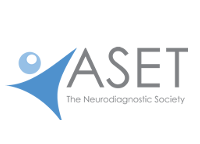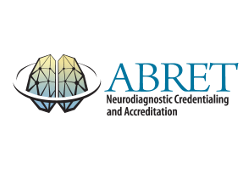Michigan Radiologic and Imaging Science Consortium
EEG Program
offered by
Lansing Community College
and Kellogg Community College
through
Michigan Colleges Online
Program Description
Neurodiagnostic Technologists are highly skilled, and highly sought after medical professionals. Their specific skill set and level of professionalism is what really sets them apart from other healthcare professions. Although there are several modalities that a Neurodiagnostic Technologist can specialize in, recording electroencephalograms is what they are most known for.
This program will focus on training Neurodiagnostic Technologists on how to apply cranial surface electrodes, and how to record an electroencephalogram. Upon completion of this program, students should feel confident and ready to take and pass the national registry board exams. A passing score will earn them the designation of R.EEG T.
This program caters to several different learning styles with classes that are online, college campus labs, and rotating hospital internships. Students are given opportunities to learn and ask questions in multiple settings. Hands on learning and direct contact with our Neurologist, Dr Mounzer Kassab make this program unique and optimal for success.
The MiRIS EEG program is designed not only to foster the skills and knowledge necessary for competent practice in EEG, but also places emphasis on professional attitudes, values and behaviors that encourage the professional growth of the individual student.
Clinical learning experiences are provided by affiliating hospitals, clinics and other EEG provider facilities. Didactic learning experiences occur in supportive college course work delivered through an online environment. Both are equally important to the development of the competent EEG technologist.
Under these philosophies, the program assumes the responsibility of a facilitator of learning. Specifically, it will plan, select, administer, and assess learning experiences. These experiences are developed to meet established objectives and eligibility requirements of the American Board of Registration of Electroencephalographic and Evoked Potential Technologists (ABRET) to complete the EEG certification exam.
-
There are 30 core program credits required for program completion.
-
A student must maintain the minimum grade requirement as indicated for each course and in accordance with the policies of the college issuing the terminal award of a degree or certificate.
-
Application to complete the certification examination administered by the ABRET is granted only if the student fulfills all academic and clinical criteria established by the ABRET, the MiRIS program and the college issuing the terminal award of a degree or certificate. Please refer to the ABRET Certification Handbook or contact the ABRET for eligibility requirements.
-
Effective January 1, 1994, individuals having been convicted of a felony or misdemeanor must file a pre-application with the ABRET in order to obtain a ruling on the impact of the conviction on their eligibility to complete the ABRET certification examination. Information about the pre-application process may be found on the ABRET’s website. Visit www.abret.org. The pre-application process can be found within the "Ethics" link. It is strongly encouraged that students pursue the pre-application process either prior to entering the program or as early in the program as possible to avoid investing time, money, and effort should they be found ineligible to complete the certification exam.
-
A student must complete and pass all clinical access requirements as determined by clinical education providers. These include health related evaluations, criminal background check(s) and drug screening. Failure to successfully pass any of these requirements will require that the student withdraw from the NDT program.
-
All policies regarding certificate or degree completion can be found in the catalog of the college issuing the certificate or degree, or by contacting the MiRIS Consortium Council member of the college issuing the certificate or degree (Program Director).
To prepare competent entry-level neurodiagnostic technologists in the cognitive (knowledge), psychomotor (skills) and affective (behavior) learning domains.
-
To provide our students with open access and a supportive environment that encourages student success in the classroom, laboratory, and on the externship site.
-
Students will demonstrate professional attitude, values and behaviors necessary for professional success.
-
Students will demonstrate critical thinking and communication skills as responsible members of the health care team.
-
Graduates of the program will be well prepared to successfully complete the ABRET certification examination.
Graduates of the MiRIS EEG program will be entry-level EEG technologist prepared to
complete the ABRET certification exam.
Upon program completion, students will:
-
Apply knowledge of using the 10/20 International Marking System and proficient electrode placement.
-
Apply knowledge of providing a quality electroencephalogram following guidelines provided by ACNS.
-
Demonstrate success in the classroom, laboratory, and clinical site.
-
Exhibit professionalism, integrity, and high standards in the classroom, laboratory and clinical site, incorporating legal and ethical responsibilities of a Neurodiagnostic Technologist.
-
Apply knowledge of specific disease conditions in the prevention, treatment, and wellbeing of patients.
-
Recognize emergency patient conditions and initiate life-saving first aid and basic life-support procedures.
-
Provide care and comfort in regard to the holistic health of the patient, technologist, and others.
-
Become a productive, responsible and professional member of society as a skilled member of the healthcare workforce.
-
Provide patient education related to NDT procedures.
More information can be found in the Student Handbook.
| Course Number | Course Title | Credit |
|---|---|---|
| NDXT 100 | Neuroanatomy and Physiology | 3 |
| NDXT 101 | Introduction to Neurodiagnostic Procedures | 3 |
| NDXT 102 | EEG Applications | 3 |
| NDXT 120 | EEG Pre-Clinical Preparation | 3 |
| NDXT 130 | Principles of EEG | 2 |
| NDXT 131 | Principles of Electricity and Electrical Safety | 1 |
| NDXT 132 | EEG Instrumentation 1 | 2 |
| NDXT 200 | EEG Procedures and Pathology 1 | 1 |
| NDXT 201 | EEG Instrumentation 2 | 2 |
| NDXT 202 | EEG Quality Control | 1 |
| NDXT 220 | EEG Clinical Practice 1 | 3 |
| NDXT 221 | EEG Clinical Practice 2 | 3 |
| NDXT 230 | EEG Procedures and Pathology 2 | 1 |
| NDXT 231 | EEG Procedures and Pathology 3 | 1 |
| NDXT 232 | EEG Procedures and Pathology 4 | 1 |
| Total Program Credits | 30 |
| Fall | Spring 1 (1st 8 weeks) |
|---|---|
| Neuroanatomy and Physiology | Principles of EEG |
| Introduction to Neurodiagnostic Procedures | Principles of Electricity and Electrical Safety |
| EEG Applications | EEG Instrumentation 1 |
| EEG Pre-Clinical Preparation | EEG Clinical Practice 1 |
| Spring 2 (2nd 8 weeks) | Summer (1st 6 weeks) |
|---|---|
| EEG Procedures and Pathology 1 | EEG Procedures and Pathology 2 |
| EEG Instrumentation 2 | EEG Procedures and Pathology 3 |
| EEG Quality Control | EEG Clinical Practice 2 |
| EEG Clinical Practice 1 |
| Summer (2nd 6 weeks) |
|---|
| EEG Procedures and Pathology 4 |
| EEG Clinical Practice 2 |
| Contact Person | E-mail address | |
|---|---|---|
| Amy Lee, Ed.D. Director of Collaborative Programs | Michigan Community College Association | alee@mcca.org |
| Kimberly Patterson, R.EEG T. | MiRIS EEG Program Director | Kimberly.patterson2@hc.msu.edu |
Contact Amy Lee at alee@mcca.org
| ASET | ABRET | CAHEEP |
|---|---|---|
 Visit the official website at
www.aset.org
Visit the official website at
www.aset.org
|
 Visit the official website at
www.abret.org
Visit the official website at
www.abret.org
|
 Visit the official website of the
www.caahep.org
Visit the official website of the
www.caahep.org
|